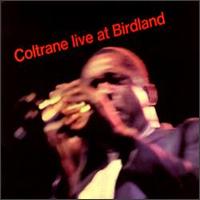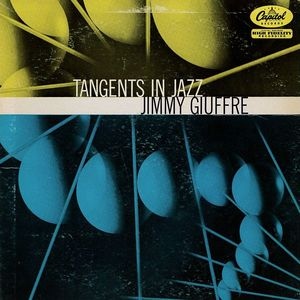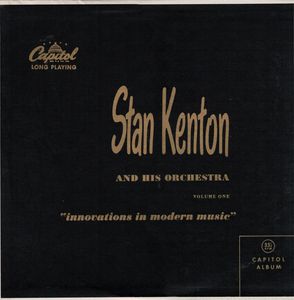Related Research Articles
A descarga is an improvised jam session consisting of variations on Cuban music themes, primarily son montuno, but also guajira, bolero, guaracha and rumba. The genre is strongly influenced by jazz and it was developed in Havana during the 1950s. Important figures in the emergence of the genre were Cachao, Julio Gutiérrez, Bebo Valdés, Peruchín and Niño Rivera in Cuba, and Tito Puente, Machito and Mario Bauzá in New York. Originally, descargas were promoted by record companies such as Panart, Maype and Gema under the label Cuban jam sessions. From the 1960s, the descarga format was usually adapted by large salsa ensembles, most notably the Fania All-Stars.
Paul Horn was an American flautist, saxophonist, composer and producer. He became a pioneer of world and new age music with his 1969 album Inside. He received five Grammy nominations between 1965 and 1999, including three nominations in 1965.
Arturo "Chico" O'Farrill was a Cuban composer, arranger, and conductor, best known for his work in the Latin idiom, specifically Afro-Cuban jazz or "Cubop", although he also composed traditional jazz pieces and even symphonic works.

William Correa, better known by his stage name Willie Bobo, was an American Latin jazz percussionist of Puerto Rican descent. Bobo rejected the stereotypical expectations of Latino music and was noted for his versatility as an authentic Latin percussionist as well as a jazz drummer easily moving stylistically from jazz, Latin and rhythm and blues music.

Leonard William Hambro, known as Lenny Hambro, was a journeyman jazz musician who played woodwinds, primarily alto saxophone, with a host of bands, orchestras, and jazz notables from the early 1940s through the mid-1960s, and continued as a session musician, music producer, booking agent, and entertainment coordinator through the mid-1990s. Early in his professional career, Hambro spelled his name "Lennie" but changed it to the former spelling in 1954, although he was occasionally referred to as "Lennie" in the press as late as 1957. Hambro broke into the profession with Gene Krupa in 1942. However, he is best known for his time as manager and assistant band leader with the New Glenn Miller Orchestra under the direction of Ray McKinley. He was well known in the Latin Jazz community and was closely associated with Chico O'Farrill.

Live at Birdland is an album by the jazz saxophonist and composer John Coltrane. It was released on January 9, 1964 through Impulse! Records. Three of its tracks were recorded live at the Birdland club and two are studio recordings. Among them is "Alabama", a tribute to four black children killed in the 16th Street Baptist Church bombing, a white supremacist terrorist attack in Birmingham, Alabama.

Alfredo "Chocolate" Armenteros was a Cuban trumpeter. He played with artists such as Arsenio Rodríguez, Generoso Jiménez, Chico O'Farrill, Orchestra Harlow, Eddie Palmieri, Cachao and Sonora Matancera. Due to his characteristic approach to Afro-Cuban trumpet playing as well as his extensive recording career, several monographs have been written on his music.
Mario Rivera was a Latin jazz saxophonist from the Dominican Republic. Besides saxophone, Rivera played trumpet, flute, piano, vibraphone, congas, and drums.
Carter Jefferson was an American jazz tenor saxophonist.
Bobby Sanabria is an American drummer, percussionist, composer, arranger, documentary producer, educator, activist, radio show host, and writer of Puerto Rican descent who specializes in jazz and Latin jazz.

Carlos Vidal Bolado (1914–1996), also known as "Vidal Bolado", was a Cuban conga drummer and an original member of Machito and his Afro-Cubans. Vidal holds the double distinction of being the first to record authentic folkloric Cuban rumba and the first to play congas in Latin jazz.
Michael Philip Mossman is an American jazz trumpeter.

Arturo O'Farrill is a jazz musician, the son of Latin jazz musician, arranger and bandleader Chico O'Farrill, and pianist, composer, and director for the Afro Latin Jazz Orchestra. He is best known for his contributions to contemporary Latin jazz, having received Grammy Awards and nominations, though he has trained in other forms such as free jazz and experimented briefly with hip hop.

Nine Flags is an album by Cuban composer-arranger Chico O'Farrill featuring performances recorded in 1966 for the Impulse! label.

Colours is an album by American jazz saxophonist Sam Rivers featuring Winds of Manhattan, an 11-piece woodwind orchestra. The album was recorded in 1982 for the Italian Black Saint label. The album was composed with some sections of group improvisation. According to participant Steve Coleman, solo improvisations were omitted before the album's release to shorten the track times.

Afro is a studio album by the jazz trumpeter Dizzy Gillespie. It was released in November 1954 through Norgran Records. Gillespie worked with many Cuban musicians on the album.

Tangents in Jazz is the second album by American jazz clarinet and saxophone player, composer and arranger Jimmy Giuffre which was released on the Capitol label in 1956.

Broadway Basie's...Way is an album by pianist and bandleader Count Basie and His Orchestra featuring performances of Broadway musical songs recorded in 1966 and released on the Command label.

Innovations in Modern Music is an album by pianist and bandleader Stan Kenton with his "Innovations" Orchestra featuring performances recorded in 1950 and originally released on the Capitol label.

Mongo Introduces La Lupe is an album by La Lupe and the Mongo Santamaria Orchestra. It was recorded at the Plaza Sound Studios in New York City and released by Riverside Records in 1963. AllMusic gave the album a rating of four stars. Reviewer Scott Yanow called it "an excellent set of stirring Afro-Cuban jazz."
References
- 1 2 "Answers from a Jazz Musician". The New York Times. 14 October 2009. Retrieved 24 July 2018.
- ↑ Robbins, Michael W.; Palitz, Wendy (2001). Brooklyn: A State of Mind . Workman. pp. 172–. ISBN 978-0-7611-1635-6 . Retrieved 23 July 2018.
- ↑ Scott Yanow. Swing. Hal Leonard Corporation. pp. 345–. ISBN 978-1-61774-476-1.
- ↑ "Jimmy Cozier". www.saveoursoul.nl. September 2001. Archived from the original on 3 March 2016. Retrieved 24 July 2018.
- ↑ "Colours". AllMusic. Retrieved 24 July 2018.
- ↑ Yanow, Scott (1 December 2000). Afro-Cuban Jazz: Third Ear. Hal Leonard. pp. 130–. ISBN 978-1-61780-032-0 . Retrieved 23 July 2018.
- ↑ "No Fear, No Die". AllMusic. Retrieved 24 July 2018.
- ↑ "The Heart of a Legend". AllMusic. Retrieved 24 July 2018.
- ↑ Ginell, Richard S. "Carambola". AllMusic. Retrieved 24 July 2018.
- ↑ The Jazz Improviser's Woodshed Volumes 1-3
- ↑ Heart of a Legend
- ↑ Carambola
- ↑ Mambo Mongo
- ↑ Brazilian Sunset
- ↑ Colours
- ↑ Title 1
- ↑ No Fear, No Die
- ↑ Anatomy of a Groove
- ↑ All My Tomorrows
- ↑ With Love